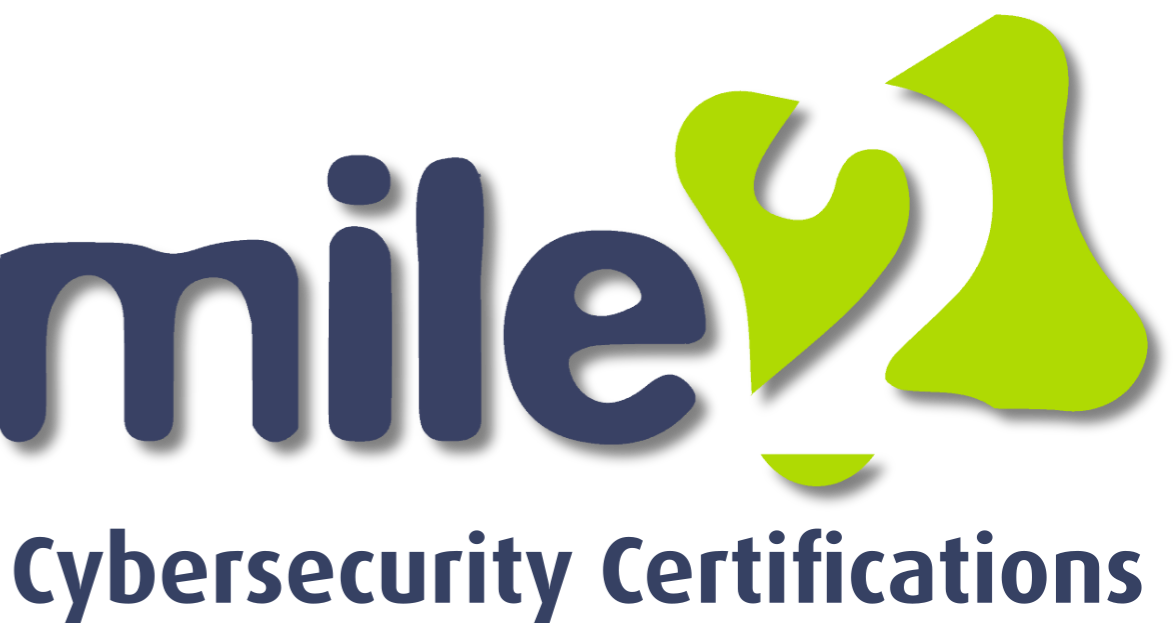Trae Johnson
Forum Replies Created
-
AuthorPosts
-
Trae Johnson
ParticipantI agree that combining physical, technical, and administrative controls is the best approach to safeguard company and customer data. Your mention of monitoring tools is also crucial—continuous monitoring helps detect suspicious activity early, allowing faster response to potential threats. One additional measure that can strengthen such systems is conducting regular penetration testing. This practice allows security teams to identify weaknesses before attackers can exploit them, ensuring that policies and controls remain effective as new threats emerge.
Trae Johnson
ParticipantThis post gives a clear and practical overview of the major cyber risks companies face today. I especially like that you mentioned employee training and limiting access—those are two of the most effective ways to prevent human error, which is often the weakest link in security. Another point worth adding is the importance of network segmentation. By dividing a company’s network into smaller, isolated sections, organizations can limit the damage if one part of the system is compromised. This makes it much harder for attackers to move laterally through the network and access critical systems or data.
Trae Johnson
ParticipantIn today’s digital environment, companies face numerous risks and vulnerabilities that can compromise their networks and data. Some of the most common include malware, phishing, ransomware, insider threats, and unpatched software vulnerabilities. Malware and ransomware can encrypt or destroy valuable data, while phishing attacks often trick employees into revealing sensitive information or login credentials. Insider threats whether intentional or accidental can expose confidential data or provide attackers with internal access. Outdated software and weak passwords are also frequent entry points for cybercriminals.
Reducing these risks, companies need to implement layered security policies. A strong Access Control Policy ensures that only authorized users can access certain systems or data. Patch Management Policies require regular software updates to close known vulnerabilities. Incident Response and Recovery Policies prepare organizations to quickly detect, respond to, and recover from attacks. Security Awareness Training is also essential employees should learn to recognize phishing emails, use strong passwords, and follow proper data-handling procedures. Finally, Backup and Disaster Recovery Policies guarantee that critical information can be restored in case of a cyberattack or data loss. By combining these proactive measures, companies can significantly reduce the likelihood and impact of a network compromise.
Trae Johnson
ParticipantThis summary captures the heart of an effective security program, especially your emphasis on training and multi-factor authentication. Absolutely, employees are the first line of defense, and continuous training helps in minimizing human error, one of the major causes of data breach. I would like to add that a Backup and Recovery Policy is also crucial. While protective measures can be put in place, there is always a risk for ransomware attacks and a proper backup strategy to quickly restore critical data without giving in to the attackers or losing fundamental information.
Trae Johnson
ParticipantI really want to commend you for doing a great job in summarizing all the major policies that strengthen an entity’s security program. I especially agree with your comment on incident response policy; it is very important to have clear plans and strategies before the actual cyber-attack for damage minimization and reduced recovery time. I would further add that policy reviews and audits are equally crucial as the policies themselves. Even the best rules become outdated with advancements in technology and threats. By scheduling periodic reviews and testing response procedures, a company can ensure its security framework remains effective and current.
Trae Johnson
ParticipantA strong security program relies on well-developed and consistently enforced policies covering all areas of an organization’s operations. One such critical policy is the Access Control Policy, which ensures that only those who should see certain systems and data, based upon their role, can see it, thereby reducing insider threat risks by limiting exposure. A Password and Authentication Policy enforces strong password requirements and, when possible, adds MFA for increased protection.
Another important aspect is the Data Protection and Privacy Policy, which defines how sensitive data like customer or employee information are collected, stored, shared, and destroyed in a secure manner. In turn, equally important will be the Network Security Policy that defines standards for firewalls, intrusion detection systems, and regular network monitoring.
Organizations also need an Incident Response Policy in order to prepare for, detect, and recover from security breaches. Such a policy ensures structured responses that limit damage and speed up recovery. Finally, a Security Awareness and Training Policy equips staff with the ability to recognize phishing, social engineering, and other types of cyber threats. Together, these policies establish a proactive security culture that will help an organization stay resilient in response to emerging cyber risks.
Trae Johnson
ParticipantThis definition does well to capture the importance of cryptography. I appreciate how you addressed the three fundamental security goals it provides—confidentiality, integrity, and authenticity. You also well identified its real-world applications, from password encryption to online transactions and digital signatures. I am glad you brought compliance and customer trust to the fore because cryptography is a key ingredient towards attaining data protection mandates and maintaining a company’s good reputation. Your abstract points out that cryptography is not a technological buzzword but, instead, is a cornerstone of modern data security that makes sensitive data trustworthy and safe from start to finish.
Trae Johnson
ParticipantYou’ve defined the basic function of cryptography and how it maintains the privacy and trust values of data. I am glad you highlighted encryption and digital signatures as both are what collectively guarantee confidentiality and authenticity. Your comment on the detection of unauthorized alteration shows that you realize how cryptography also guarantees data integrity, not just privacy. I especially agree with your mention of actual use cases like email, online banking, and cloud storage—these show how pervasive cryptography has become in our everyday life. All in all, your entry well describes how cryptography creates digital trust through the protection of data against cyber attacks and third-party intrusions.
Trae Johnson
ParticipantCryptography is very crucial in securing data and ensuring its integrity in both personal and business applications. It forms the basis of secure communication through guarantees that information is confidential, authentic, and unchanged. Encryption, hashing, and digital signatures are some of the major cryptographic processes that ensure security against unauthorized access and data tampering. Through these techniques, organizations can verify identities, keep intruders out, and verify sensitive data such as financial information, medical records, and patents. Cryptography not only safeguards data in transit and storage but also ensures compliance with privacy laws and builds public confidence in electronic systems.
Trae Johnson
ParticipantThis response clearly and in great detail explains why access controls are essential to the security stance of a business. I like how you broke down the concept into everyday language and explained how such policies control who has access to view or modify specific information. Your examples, such as demanding strong passwords, locking up computers, and using two-step verification, show effective ways businesses can apply these principles in everyday life. I also appreciate your mention of personal responsibility because the success or failure of a security policy is most often the result of human action. Referring both to hackers and system error, you showed respect for the entire spectrum of why access controls are necessary. Your response demonstrates how carefully crafted policies and constant user education work together to secure data and maintain trust in an organization.
Trae Johnson
ParticipantYour definition of access controls in the AAA model is excellent. I appreciate how you put together authentication, authorization, and accounting as the blocks on which a firm’s access control model is based. Your elucidation of role-based access control (RBAC) and segregation of duties was the gem as key factors that thwart abuses and reduce the possibility of errors or frauds. The inclusion of data classification and continuous monitoring enables a security strategy that is holistic in the sense that policy, technology, and monitoring work together. I also liked that you highlighted physical controls, which always seem to fall outside of cybersecurity discussions. Overall, your post provides a good summary of how multi-layered access control policy can protect sensitive data and operational integrity.
Trae Johnson
ParticipantAccess controls are an essential component for the protection of any company’s systems, information, and business as a whole. They determine who will have access to specific resources and what these users can perform, reducing the likelihood of data breaches, insider attacks, and unauthorized modifications. A sound access control policy begins with the principle of least privilege and limits employees’ access to perform their job functions. This not only inhibits potential damage via compromised accounts but also makes individuals responsible via monitoring and logging. Where organizations combine strong authentication controls, including multi-factor authentication, with constant policy enforcement and employee training, they create a security environment where functionality is weighed against protection. In essence, access controls safeguard sensitive data by guaranteeing trust at every level of access is validated.
Trae Johnson
ParticipantYou’ve outlined an excellent model for network security with an emphasis on layered controls. I agree technical, administrative, and physical controls, when combined, offer a solid, secure barrier. Technical controls like firewalls, intrusion prevention systems, multi-factor authentication, and encryption prevent malicious actors from unauthorized access and encrypt sensitive data. Administrative controls like policy, training, and role-based access inform users of their responsibilities and limit exposure if their credentials are compromised. Physical controls such as locked server rooms and badge access add another layer of security. All of these are collectively elements of a defense-in-depth strategy that reduces risk, prevents expected failures, and assists in ensuring business continuity—just the type of security posture organizations need to have.
Trae Johnson
ParticipantI would agree that effective protection includes physical as well as software controls employed in combination. Physical controls like locks, guards, and fire alarms bar unauthorized access and protect against environmental hazards, whereas software controls like firewalls, encryption, and security patches protect against cyber attacks. I also like your insistence on layered security—protecting only one layer of protection leaves the system open to vulnerabilities in other areas. A comprehensive, multi-phased approach ensures that a network is resistant to a wide variety of threats, from human error to the most sophisticated cyberattacks.
Trae Johnson
ParticipantThe utilization of technologies like 5G indeed expanded access and ease, it also opened up new weaknesses that needed to be actively addressed by businesses. I believe you’re correct that the implementation of encryption with cryptographic keys is critical as it protects sensitive data even in case of a system breach. Security policies are equally important, in that they teach workers good habits and reduce the risk of accidental disclosure of data. Together, these technical and procedural controls help organizations maintain trust, protect information, and respond to an increasingly sophisticated online environment.
-
AuthorPosts

